About
The Bacterial infections: antimicrobial therapies group is a senior group.
Infectious diseases constitute a tenacious and major public health problem all over the world. The emergence and increasing prevalence of bacterial strains that are resistant to available antibiotics demand the discovery of new therapeutic approaches.
Biofilms are bacterial communities that grow embedded within a protective matrix produced by themselves.
Chronic infections caused by bacteria growing in biofilms, are enormously complicated to treat. It increases their fitness and survival, thus complicating treatment and diagnosis because they persist despite the action of antibiotic therapies and adaptive immune responses.
Over 60% of all human infections are characterized by the formation of a biofilm, which is involved in a wide variety of pathological conditions by either growing over human tissues (Cystic Fibrosis, Chronic Obstructive Pulmonary Disease, chronic wound, etc.) or by developing on the surfaces of medical devices (e.g. endotracheal tubes, intravenous and urinary catheters, etc.).
Our lab aims to investigate new antimicrobial therapies and strategies to combat bacterial infections with different objectives:
- The use of nanomedicine techniques for the development of novel and specific nanoparticles to deliver existing antibiotics or new identify antimicrobial drugs, significantly when the bacteria are growing in biofilm, close to the physiological conditions of the disease and where the current chemotherapy fails;
- The identification and screening of new molecules for the highly selective inhibition of new antibacterial targets (e.g. ribonucleotide reductases);
- The use of nanomedicine techniques for the development of novel and specific nanoparticles to deliver existing antibiotics or new identify antimicrobial drugs, significantly when the bacteria are growing in biofilm, close to the physiological conditions of the disease and where the current chemotherapy fails;
- To study new methodologies to treat chronic bacterial infections in patients suffering cystic fibrosis;
- To develop a new family of antibacterial vaccines;
- The development of new strategies for bacterial coculture systems;
- To study and develop models for wound healing infections and the search of novel treatments;
- The use of lab-on-a-chip technology to deeply elucidate mechanisms to combat bacterial forming biofilm as well as new approaches to identify multiresistant bacteria to different antibiotics.
- To establish the molecular basis for the regulation of genes involved in DNA synthesis (ribonucleotide reductase genes), their importance in virulence and biofilm formation;
We believe these projects will be beneficial to society since we explore the use of different bioengineering approaches to elucidate ways to diagnose and eradicate multi-drug resistant bacteria.
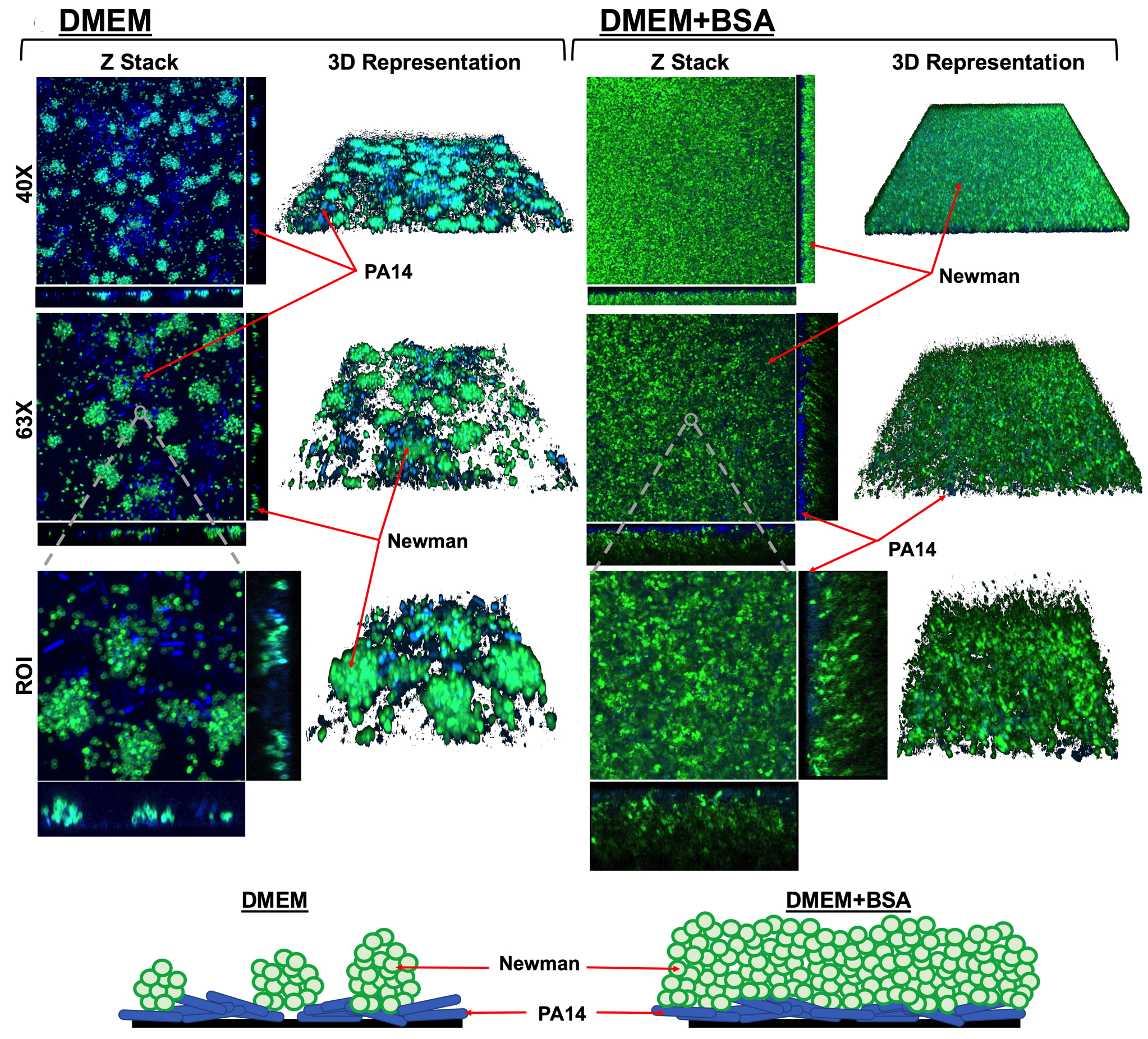
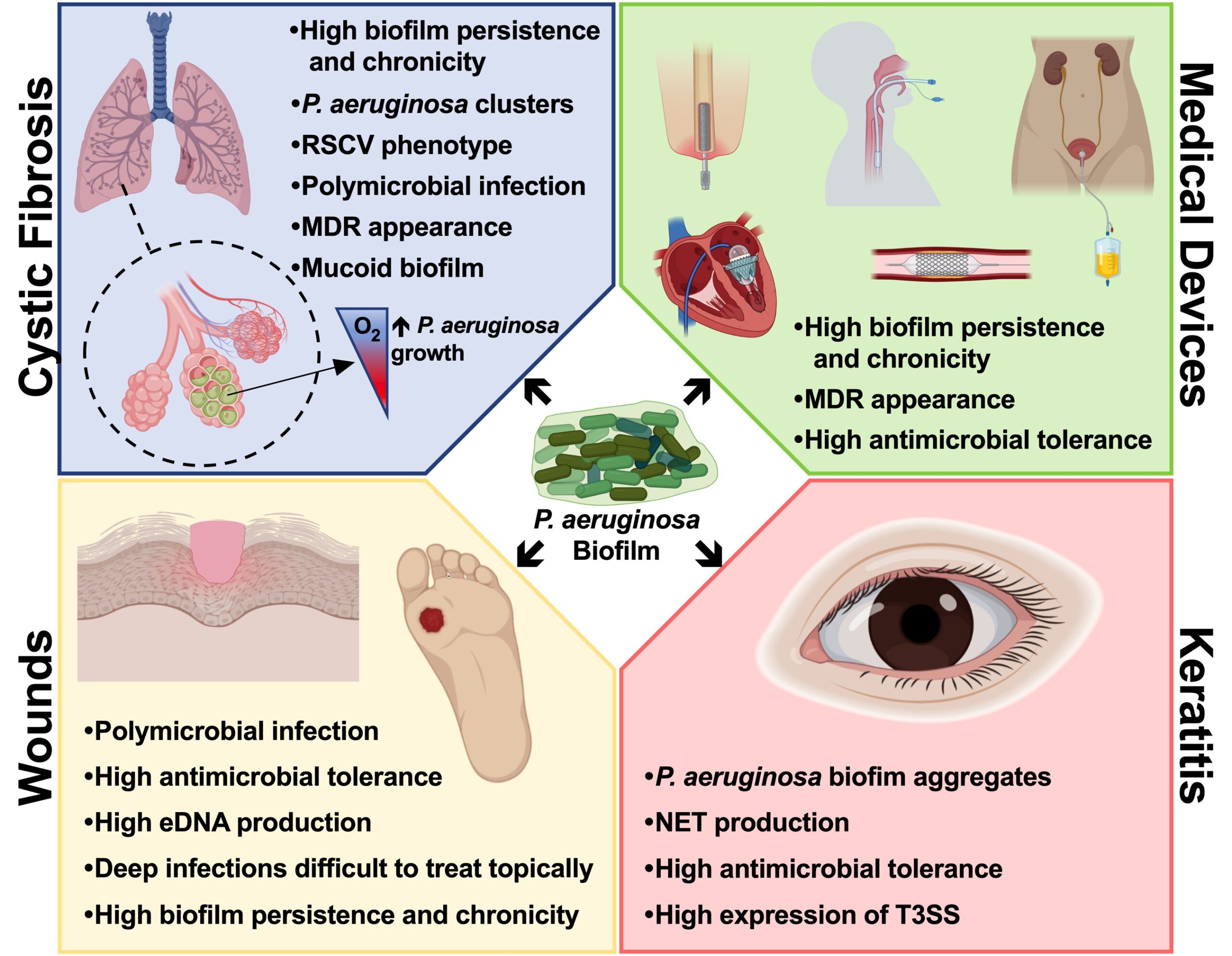
Related links:
Staff
Former Members
Maria del Mar Cendra | PhD Student
Projects
| NATIONAL PROJECTS | FINANCER | PI |
|---|---|---|
| InfectTreat · Understanding DNA metabolism and new insights in polymicrobial biofilms: development of more efficient therapies to tackle bacterial infections (2022 – 2025) | MICIU. Generación Conocimiento proyectos I+D | Eduard Torrents |
| DISnanoAMR · Desarrollo de nuevas estrategias para hacer frente a la resistencia antibiótica (2022 – 2025) | MICIU. Poryectos de I+D+i en líneas estratégicas | Eduard Torrents |
| IVD-Biofilm · Desarrollo de un nuevo dispositivo para el diagnóstico personalizado en infecciones relacionadas con biopelículas (2022 – 2024) | MICIU. Proyectos Pruebas de Concepto | Eduard Torrents |
| Acuerdo de colaboración ente el IBEC y la Asociación Catalana de Fibrosis Quística (2019 – 2024) | Asociación Catalana de Fibrosis Quística | Eduard Torrents |
| Las biopelículas polimicrobianas para el desarrollo de terapias más eficientes contra las infecciones bacterianas” (2021-2022) | Diputació de Barcelona | Eduard Torrents |
| combatRNR · Comprender la síntesis del ADN en patógenos bacterianos: nuevas estrategias para el tratamiento de enfermedades infecciosas (2019 – 2022) | MICIU. Retos investigación: Proyectos I+D | Eduard Torrents |
| BIOVAC · Artificial bacteria: a novel generation of bioinspired vaccines (2020 – 2023) | BIST. BIST Ignite Program | Eduard Torrents |
| Las biopelículas polimicrobianas para el desarrollo de terapias más eficientes contra las infecciones bacterianas” (2021-2022) | Diputació de Barcelona | Eduard Torrents |
| FINISHED PROJECTS | FINANCER | PI |
|---|---|---|
| Terapias alternativas para el tratamiento de las infecciones bacterianas crónicas en pacientes con fibrosis quística a (2019-2021) | Asociación Catalana de Fibrosis Quística | Eduard Torrents |
| Noves estratègies antimicrobianes per combatre la fibrosi quística (2016-2020) | Obra Social La Caixa | Eduard Torrents |
| BiofilmChip CaixaImpulse BiofilmChip (2018 – 2020) | Obra Social La Caixa | Eduard Torrents |
| Desarrollo de una nueva familia de compuestos antimicrobianos | Asociación Catalana de Fibrosis Quística | Eduard Torrents |
| Identificación y administración de nuevas moléculas antimicrobianas contra Pseudomonas aeruginosa creciendo en biofilm | Asociación Española Fibrosis Quística, Becas de Investigación “Pablo Motos” | Eduard Torrents |
| Novel strategies to combat bacterial chronic infections by the development of microfluidics platforms to analyse and treat bacterial growing in biofilms (2016) | Obra Social La Caixa | Eduard Torrents |
| Redes reguladoras de la expresión génica de las distintas ribonucleotidil reductasas en bacterias | MINECO, I+D-Investigación fundamental no orientada | Eduard Torrents |
| BACTSHOT Novel antimicrobial therapy (2016-2017) | EIT Health Head Start – Proof of Concept | Eduard Torrents |
| inhibitRNR Las ribonucleotido reductasas como una nueva diana terapéutica frente a patógenos bacterianos (2016-2018) | MINECO, Retos investigación: Proyectos I+D | Eduard Torrents |
| Ribonucleotide reductasas: una nueva diana terapéutica contra organismos patógenos en enfermos de fibrosis quística (2010-2017) | Asociación Española Fibrosis Quística, Becas de Investigación “Pablo Motos” | Eduard Torrents |
| RNRbiotic New strategy to combat bacterial infections (2015-2017) | Obra Social La Caixa, Caixaimpulse | Eduard Torrents |
Publications
(See full publication list in ORCID)
Check for more detailed information on the outputs of the Group at IBEC CRIS portal.
Publications list:
Equipment
- Zeiss LSM 800 Confocal Laser Scanning Microscope
- Nikon Inverted Fluorescent microscope ECLIPSE Ti-S/L100
- Cell culture facilities for microbial infections
- Characterization of nanoparticles/biomaterial antibacterial activity
- Drosophila melanogaster and Galleria mellonella as a model host for bacterial infections
- Continuous flow system model for bacterial biofilm development
- Single Channel Fiber-Optic Oxygen Meter with microsensor
- Molecular biology, biochemistry and protein purification facilities
- Bacterial expression systems for heterologous protein production
Collaborations
- Prof. Daniel Ruiz
Català de Nanociència i Nanotecnologia (ICN2), Barcelona, Spain - Prof. Bianca Sclavi
NRS Biologie Computationnelle et Quantitative. Sobornne Université. Paris. France - Dr. Esther Julián
Dept. de Genètica i de Microbiologia, Universitat Autònoma de Barcelona, Spain - Prof. Josep Samitier
IBEC - Prof. Santiago Vazquez
Laboratori de química farmacèutica, Pharmacy Faculty, Barcelona University - Prof. Gabriel Gomila
IBEC - Dr. Maarten Fauvart
IMEC, Leuven, Belgium
News
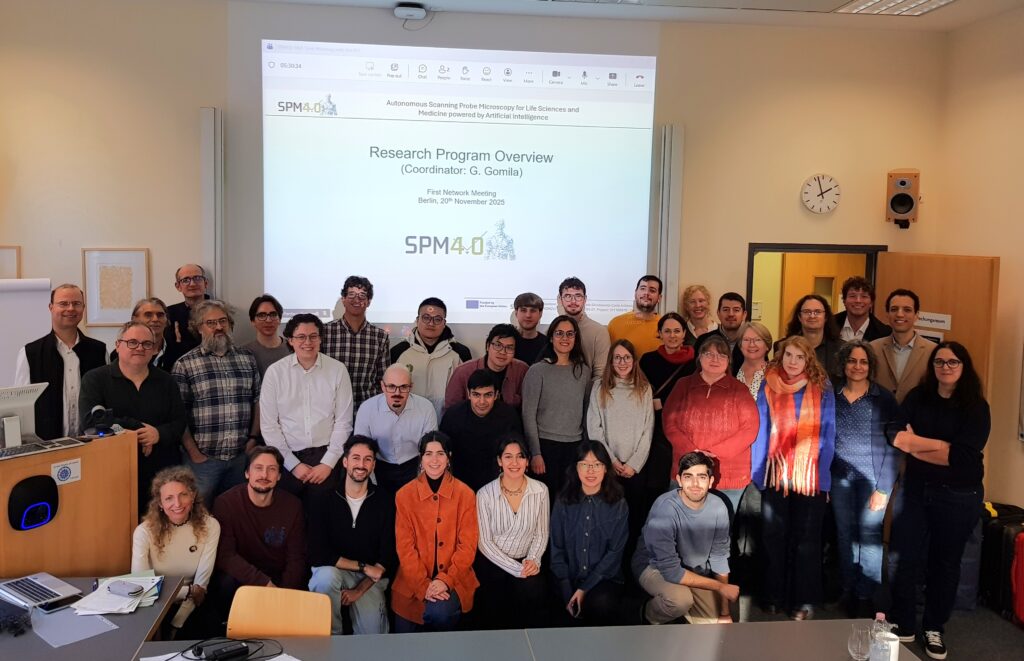
Berlín acull la reunió intermèdia i el primer curs de formació de la xarxa SPM4.0, coordinada per l’IBEC
El consorci SPM4.0 es va reunir a Charité-Berlín per celebrar el seu primer curs de formació i la seva reunió intermèdia per tal de reforçar la col·laboració científica i donar suport al creixement dels investigadors doctorals del projecte. Les sessions van oferir una visió general completa dels actuals avenços científics i de les futures activitats de formació. Aquesta fita va reforçar encara més la coordinació a tota la xarxa i va establir les bases per assolir els següents objectius del projecte.
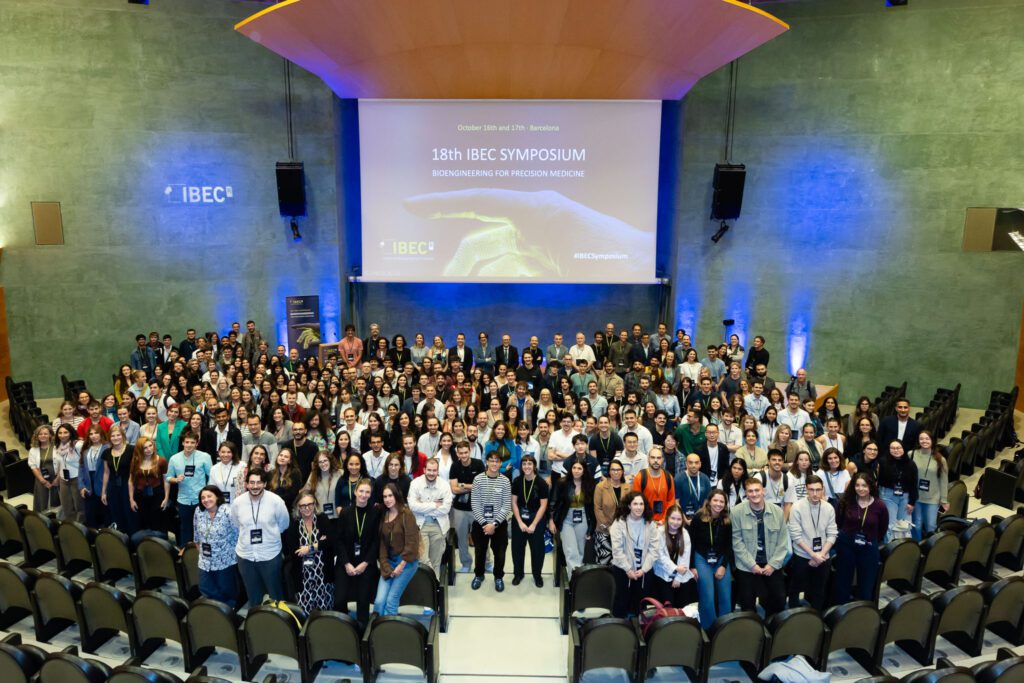
Bioenginyeria per a la medicina de precisió en el 18è Simposi de l’IBEC
El 18è Simposi anual de l’IBEC es va centrar en ‘Bioenginyeria per a la Medicina de Precisió’, una de les àrees clau d’aplicació de l’IBEC. Van ser prop de 300 les persones assistents a l’esdeveniment, entre les quals es trobava personal investigador local i internacional. Un ambient multidisciplinari en el qual experts i expertes d’altres centres i la mateixa comunitat de l’IBEC van tenir l’oportunitat de presentar els seus projectes i intercanviar coneixement.
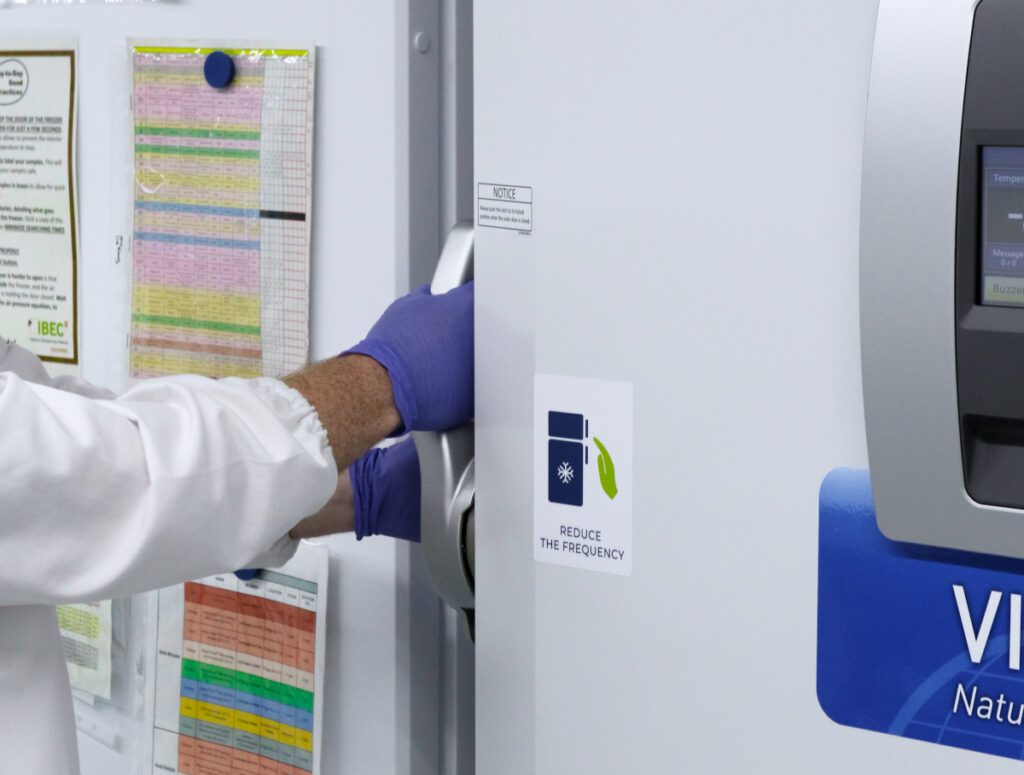
Set laboratoris addicionals de l’IBEC aconsegueixen el màxim nivell en la certificació My Green Lab
Seven more research groups at the Institute for Bioengineering of Catalonia (IBEC) have been certified by My Green Lab, reaching the highest rating, the Green Level, for sustainable laboratory practices. With these additions, IBEC core facilities and 70% of the Institute’s laboratories are now certified.
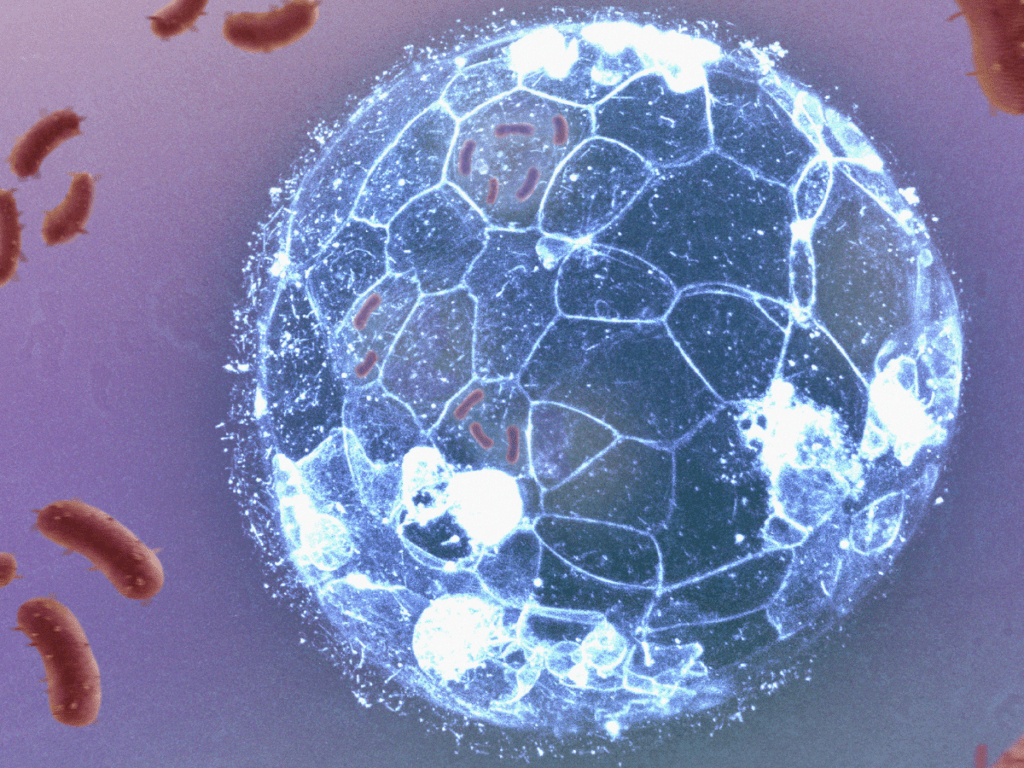
Descobreixen que els embrions poden eliminar infeccions bacterianes abans de formar el seu sistema immune
El treball, liderat per un equip del CSIC i l’IDIBELL amb la col·laboració de l’IBEC, aconsegueix visualitzar cèl·lules d’embrions eliminant infeccions bacterianes, abans de la formació del sistema immune. La investigació descriu un mecanisme de fagocitosi similar al que fan servir els glòbuls blancs, i revela que aquest mecanisme també és present en embrions humans.
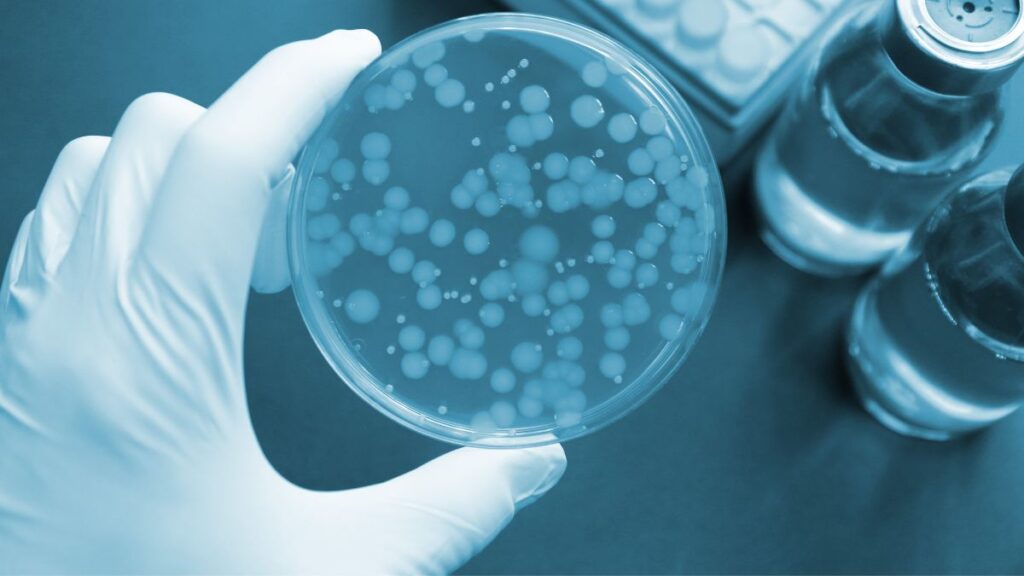
Aquests bacteris pulmonars s’alien per evadir el sistema immunitari
Un estudi liderat per l’Institut de Bioenginyeria de Catalunya (IBEC) i la Universitat Autònoma de Barcelona (UAB) ha descobert com la coinfecció per Pseudomonas aeruginosa i Mycobacterium abscessus, dos patògens pulmonars comuns, pot suprimir la resposta immunitària i empitjorar el pronòstic de pacients amb malalties respiratòries. Les troballes, publicades a la revista Virulence, proporcionen una nova visió de per què les infeccions polimicrobianes són particularment difícils de tractar i obren la porta a noves estratègies terapèutiques.

Eduard Torrents rep la distinció del programa ICREA Acadèmia
L’investigador de l’IBEC Eduard Torrents ha estat guardonat amb la distinció “ICREA Acadèmia” que atorga la Institució Catalana de Recerca i Estudis Avançats (ICREA). El líder del grup de Infeccions Bacterianes: teràpies antimicrobianes a l’IBEC, ha rebut el premi en la categoria de Ciències de la Vida i de la Salut.
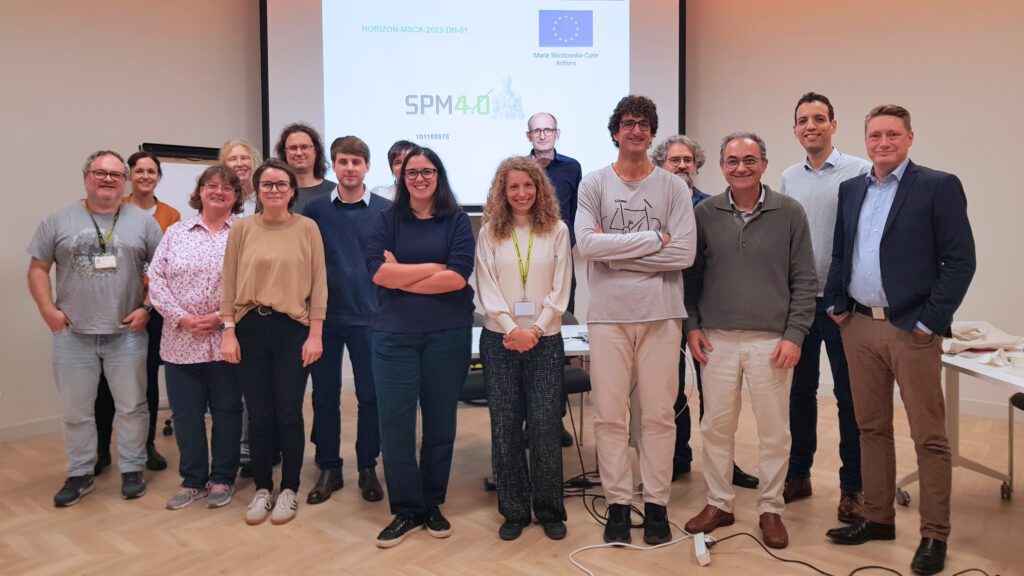
L’IBEC acull la reunió de llançament del projecte europeu SPM4.0
Investigadors de tot Europa es van reunir per a la reunió de llançament del projecte SPM4.0, una innovadora Xarxa Doctoral Marie Curie Skłodowska (MSCA-DN) dedicada a avançar en les capacitats de la microscòpia de sonda de rastreig (SPM) autònoma impulsada per intel·ligència artificial. L’esdeveniment, celebrat a l’IBEC, va marcar el començament d’una iniciativa amb visió de futur destinada a formar una nova generació d’investigadors i investigadores per ampliar els límits de la tecnologia dins dels camps de les ciències de la vida i la medicina.
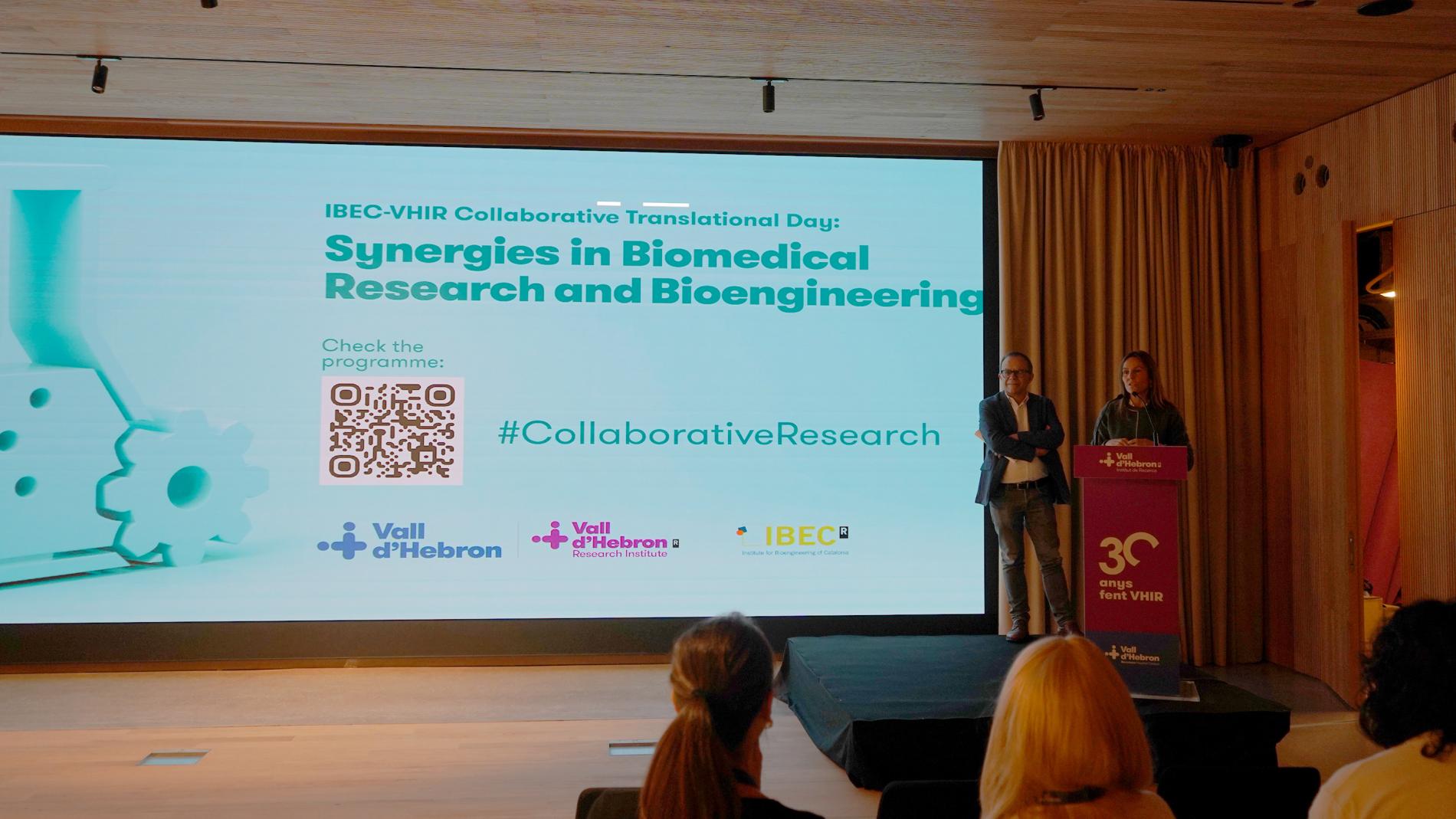
L’IBEC i el VHIR celebren una jornada de col·laboració per fomentar les sinergies
La 1a Jornada Col·laborativa Translacional entre el Vall d’Hebron Institut de Recerca (VHIR) i l’Institut de Bioenginyeria de Catalunya (IBEC), celebrada el 21 de novembre, ha estat una oportunitat per conèixer els projectes i les línies de recerca d’ambdues institucions i promoure la interacció entre els professionals.
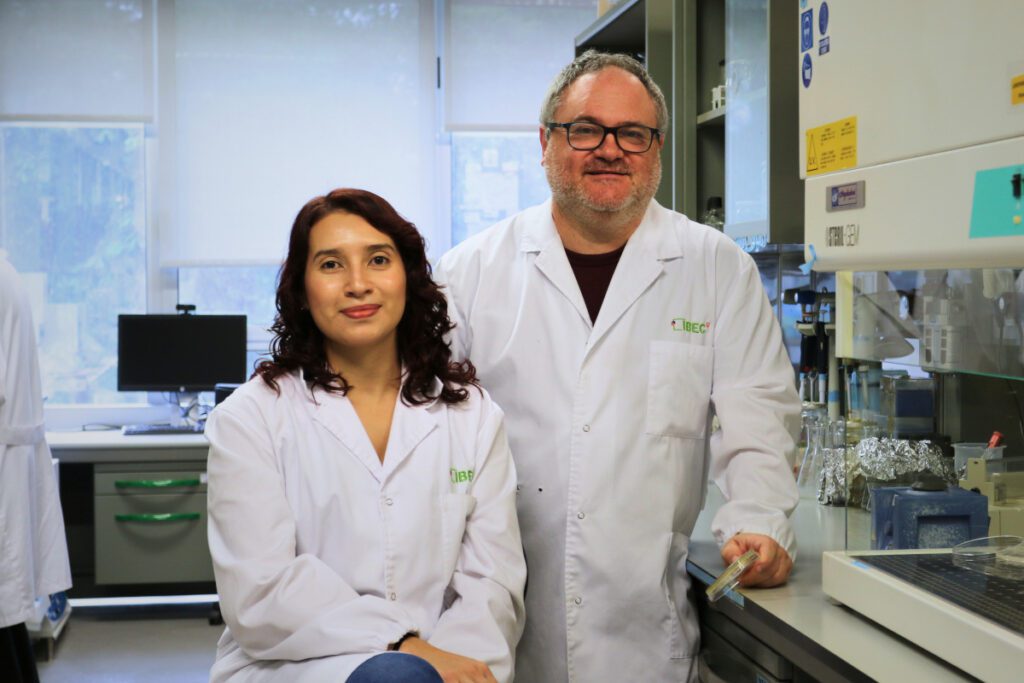
Histones per frenar les infeccions bacterianes
Una investigació liderada per l’IBEC ha analitzat l’activitat antimicrobiana d’histones humanes enfront de diferents bacteris, tant en solució com en biofilm. Els resultats són molt prometedors i obren la porta a trobar nous tractaments més efectius, especialment davant infeccions per Pseudomonas aeruginosa. Aquest bacteri és el principal responsable del desenvolupament de ferides cròniques i insuficiència pulmonar en pacients amb fibrosi quística i altres malalties respiratòries.
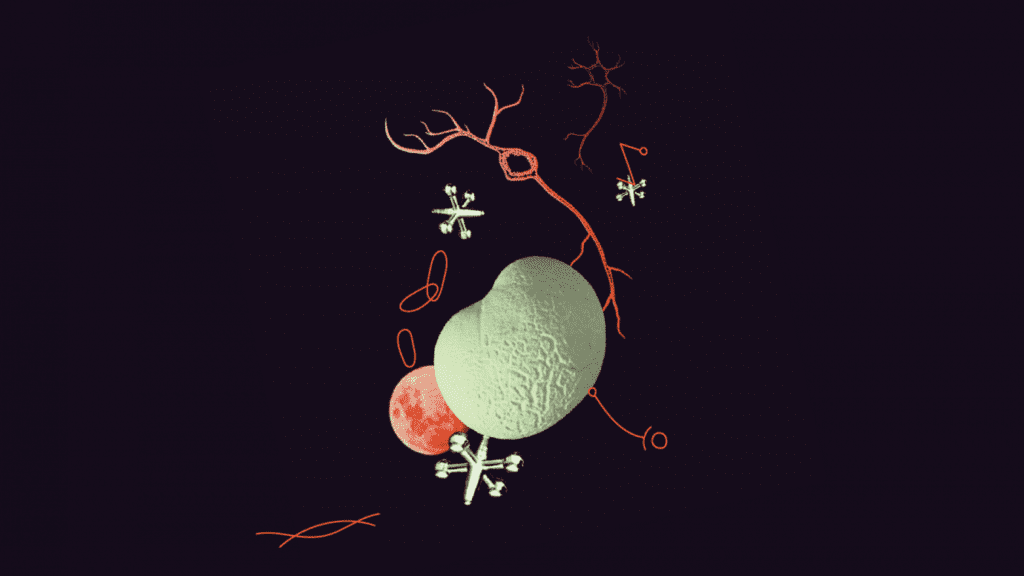
Dos projectes amb participació de l’IBEC seleccionats en la convocatòria de xarxes de doctorat MSCA
L’IBEC coordinarà SPM4.0 i participarà com a soci en ENTRY-DM, dos dels projectes seleccionats en la convocatòria 2023 de xarxes de doctorat dins del marc de les Accions Marie Skłodowska-Curie (MSCA). Gràcies a aquests dos projectes, l’IBEC incorporarà tres nous doctorands a la seva plantilla.
Jobs
Senior Technician at the Bacterial Infections and Antimicrobial Therapy (BIAT) Research Group
Ref: ST-ET // Deadline: 23/09/2025
Laboratory technician at the Bacterial Infections and Antimicrobial Therapy (BIAT) Research Group
Introduction to the vacant position: The Bacterial Infection and Antimicrobial Therapy Group is looking for a Laboratory Technician to work on the development of new technologies to treat chronic bacterial … Read more
Post-Doctoral position at the Bacterial Infection and Antimicrobial Therapy (BIAT) Research Group (PD_ET)
Ref: PD_ET // Deadline: 24/01/2024
Postdoctoral position at the Bacterial Infection and Antimicrobial Therapy (BIAT) Research Group (Pd_ET)
Ref: Pd_ET // Deadline: 07/07/2023
Postdoctoral position at the Bacterial Infection and Antimicrobial Therapy (BIAT) Research Group
Ref: BIAT // Deadline: 28/02/2023

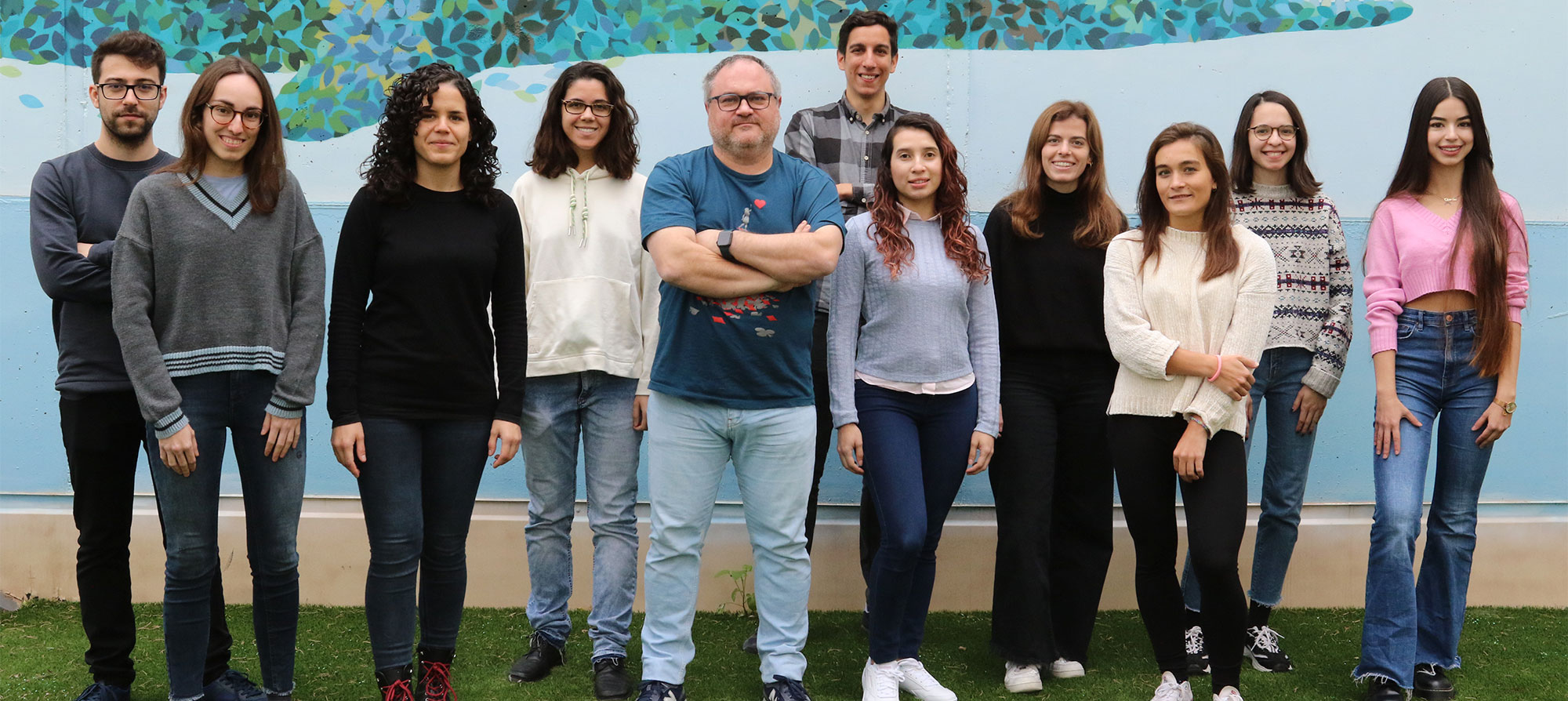
 ibecbarcelona.eu
ibecbarcelona.eu